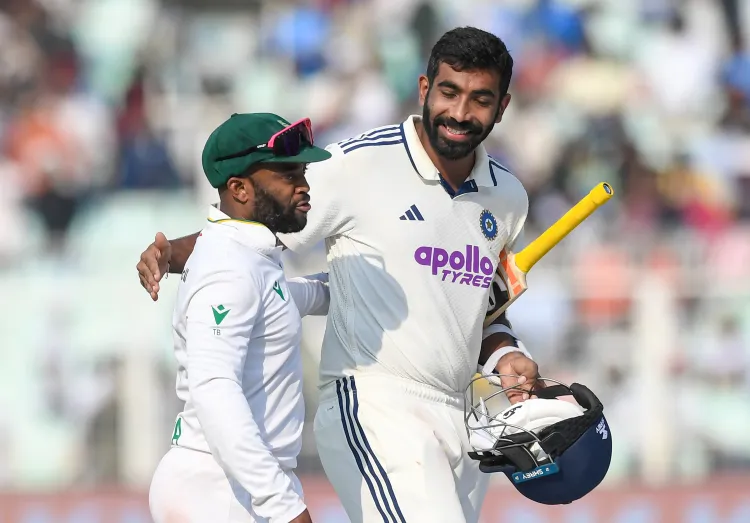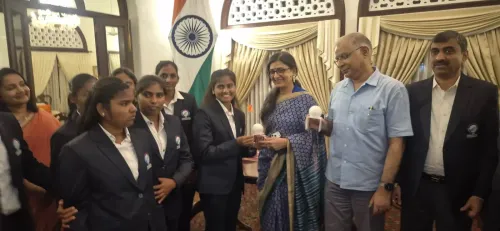Is the 'Bauna' Remark a Big Issue? Amit Mishra Highlights Bavuma's Composure Under Pressure

Synopsis
Key Takeaways
- Amit Mishra emphasizes the importance of mental resilience in cricket.
- The 'bauna' comment is considered trivial by Mishra.
- Temba Bavuma's unbeaten 55 is a testament to his composure under pressure.
- Young Indian players are encouraged to learn from experienced players.
- Strategic partnerships are key to success in cricket.
New Delhi, Nov 17 (NationPress) Former Indian leg-spinner Amit Mishra has minimized the uproar over the 'bauna' (dwarf) remark aimed at South African captain Temba Bavuma during the inaugural Test at Eden Gardens in Kolkata. He emphasized that it’s not a significant issue while commending the visiting captain’s remarkable unbeaten 55 under pressure.
A stump microphone incident caught Jasprit Bumrah and Rishabh Pant referring to Bavuma’s height as ‘bauna bhi hai’ during an LBW appeal in the 14th over. Though the term is often used for individuals with dwarfism, it can be interpreted as offensive when concerning those of shorter stature.
“This is a typical occurrence. It's not a significant issue. Understand that South Africans converse in their own language outside of English. We are also unaware of what they might say about us in their native tongue. Just as we speak in our way in Hindi, that’s completely normal,” Mishra stated in an exclusive conversation with IANS on Monday.
Regarding Bavuma’s unbeaten 55 on day three, which was also the highest individual score of the match, Mishra praised the mental strength Bavuma exhibited on a challenging pitch where no team managed to score 200. This innings was crucial, as India was dismissed for 93 while chasing 124 for victory.
“The manner in which Bavuma managed pressure, scoring fifty runs under duress, was impressive. When a senior player is beside you, it’s essential to strengthen your mental approach regarding which shots to play and which to avoid. He demonstrated this by exercising patience and judiciously selecting which deliveries to hit,” he remarked.
“For any senior player, proving oneself under pressure is vital. His fifty-odd runs showcased determination, patience, and exceptional pressure management,” he added.
Mishra also suggested that the young Indian batters could learn valuable lessons from Bavuma’s batting technique on a spin-friendly pitch. “When you play, you must absorb a lot from another player. For instance, if a player is performing well, analyze why he is succeeding and how he scored runs. You can learn from him,” he noted.
“This young Indian team has a bright future. I’m optimistic about them because there is immense talent within the squad. They need to be patient and enhance their skills. Adjustments in their strategy will be necessary, especially in such matches,” he continued.
As they look forward to the second Test in Guwahati, where India aims to level the two-match series, Mishra concluded by stating that the hosts must develop a clear strategy focused on building partnerships and honing their skills.
“I would emphasize that batting is paramount—aim to create small partnerships first, then establish longer ones, and bat for extended periods once a player is well-set. Avoid risky shots and adapt according to the pitch and the bowler. Concentrate on your strategies, foster small partnerships, and communicate with senior players and coaches,” he advised.
“You should guide them not to concentrate excessively on the pitch but rather on their abilities and tactics—such as which shots to play against which bowler. Pay close attention to strategies, aiming for longevity at the crease and fostering small partnerships.









